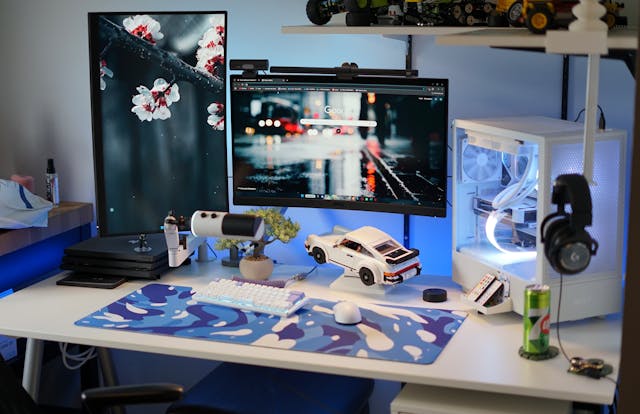Most people choose their business based on trends, not fit. They see what’s hot on TikTok or what someone else made six figures doing and try to copy-paste. That rarely works. Why? Because business success is personal. It’s not just about what makes money. It’s about what matches your strengths, interests, and natural way of working.
You don’t need to mold yourself into a different type of person to succeed. Instead, align your business with who you already are. When you do that, you’re not just building income; you’re building momentum. Let’s break down how.
Step 1: Understand the Real You
Forget generic personality types like “introvert” or “extrovert.” What matters is how you solve problems, manage energy, make decisions, and handle pressure. Do you thrive in structured systems or need creative freedom? Do you prefer one-on-one interactions or broadcasting to many? Do you need external motivation, or do you create your own drive?
Grab a pen. Ask yourself:
- When do I feel most energized?
- What type of work drains me fast?
- What do people often ask me for help with?
- How do I naturally organize my day (or not)?
Be brutally honest. This is the foundation for your ideal business.
Step 2: Match Common Personality Patterns with Business Models
This isn’t rigid science; it’s a directional map. Use it as a filter, not a box.
1. The Builder (Strategic, System-Oriented, Long-Term Focus)
Ideal Business: SaaS startup, real estate investing, agency model, Amazon FBA (with systems in place). You thrive on building complex systems over time. You think in terms of frameworks, not feelings. You don’t need quick wins—you want scalable ones.
2. The Creator (Imaginative, Independent, Driven by Ideas)
Ideal Business: YouTube channel, digital products, course creation, writing, and design. You work best with minimal rules and maximum expression. You need to build something that feels uniquely yours. Monetization is a puzzle, not a chore.
3. The Connector (Empathetic, Talkative, Network-Driven)
Ideal Business: Coaching, consulting, personal brand, influencer marketing, community-led memberships. You build rapport fast and genuinely love helping people grow. Your advantage isn’t your knowledge alone—it’s your ability to communicate.
4. The Executor (Disciplined, Tactical, Gets Things Done)
Ideal Business: Local services, reselling, drop servicing, operations manager. You get a dopamine hit from checking boxes and crossing tasks off. You’re not romantic about business. You just want results.
Step 3: Avoid the Trap of Imitation
Scrolling Instagram and thinking, “I could do that too” is a trap. What works for someone else may feel like prison to you. Copying a model you don’t naturally align with can burn you out faster than failure. Don’t chase the fantasy of passive income without understanding the process behind it. Someone else’s freedom formula might be your worst nightmare.
Instead, reverse-engineer success based on you. If you hate editing video, don’t launch a YouTube channel. If you get bored doing the same task every day, don’t start a cleaning business. Start where you are. Build what fits.
Step 4: Test Fast, Fail Small, Learn Big
You don’t need to overthink this for six months. Pick a business model that aligns with your natural style and run a micro-test.
- Sell a low-ticket offer to your network.
- Launch a simple landing page.
- Offer one service to one person.
Permit yourself to explore. You’re not locking yourself in for life. You’re building data about yourself and the market. Every test is a shortcut to clarity.
Step 5: Grow in the Direction of Ease
When something feels easy, it doesn’t mean it’s not valuable. Often, the thing that comes most naturally is the one you undervalue. That’s a mistake. Ease is a signal. It points to something that could compound over time. Don’t abandon what feels effortless; double down and refine it. That’s what sustainable business looks like: high-value work that feels like play.
Final Thought
You don’t need to become someone else to succeed in business. You need to become more of who you already are. Choose a business that matches your natural strengths and preferences, not the algorithm’s trends. The right fit multiplies your effort and helps you stay consistent. And consistency beats talent every time. That’s how real businesses are built. Not from hype but from alignment.
- Graphic Design for Beginners: Best Tools & Tips to Start in 2026 - February 22, 2026
- How to Start a Blog in 2026 and Turn It Into a Steady Income Stream - November 10, 2025
- 2026: The Business Sectors Creating the Next Wave of Millionaires—How to Tap into - November 6, 2025








